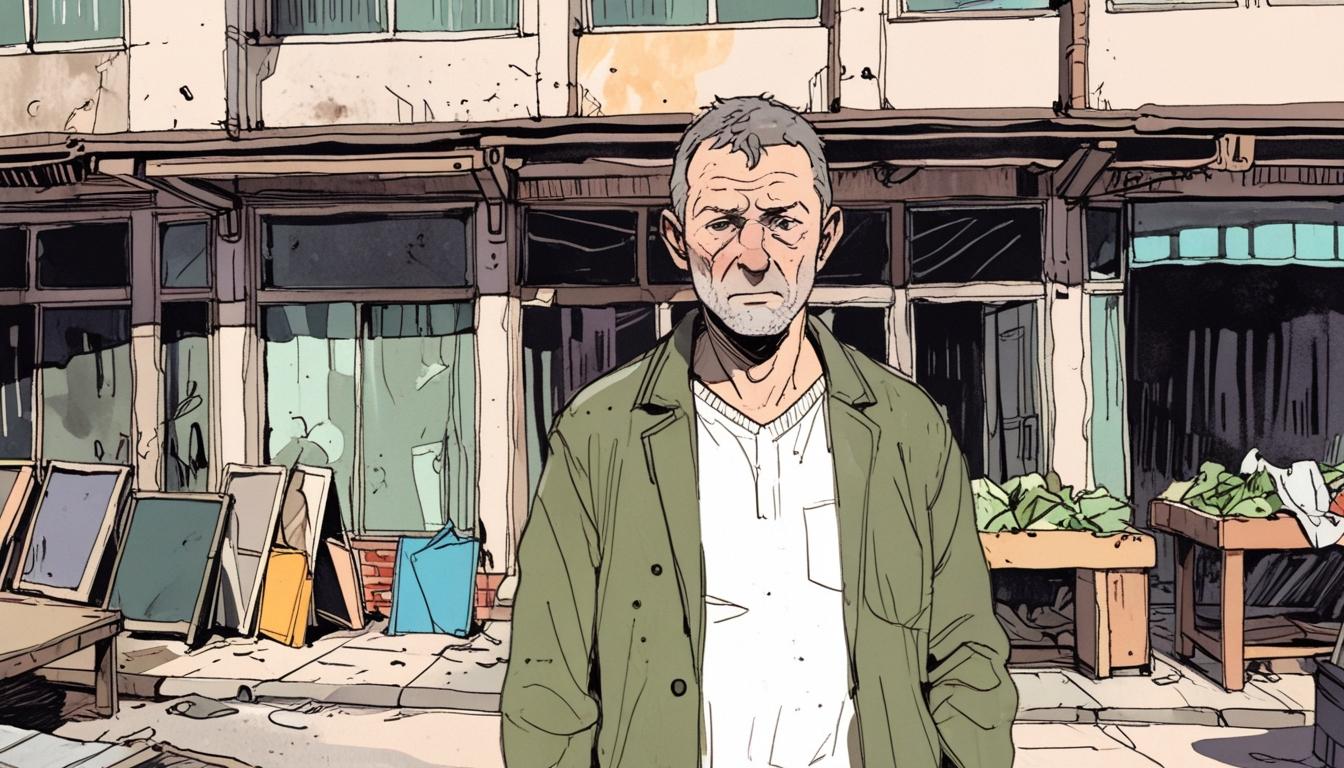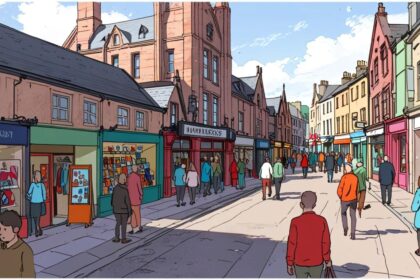Rob Suckling, a stroke survivor and long-time trader at Birmingham’s Oasis Market, voices his frustration following the abrupt closure of the Priory Square shopping centre due to fire safety risks.
Rob Suckling, a 56-year-old stroke survivor and long-time trader at Birmingham’s Oasis Market, has expressed deep frustration following the abrupt closure of the Priory Square shopping centre, which housed the market. Rob, who operated an army surplus stall at the venue for nearly two decades, was informed on 31 March that the centre would close indefinitely due to significant fire safety risks identified during inspections.
Hammerson, the property owner, stated that remedial works necessary to address these safety concerns were deemed excessively extensive, leading to the decision to end tenancies. Following the shutdown, traders were granted limited access to clear out their stalls, yet many, including Rob, were unable to retrieve all their belongings due to time constraints. “Everyone’s left fixtures and fittings in the market because they just didn’t have the time to get any of it out,” Rob told BirminghamLive.
The sudden closure has severely impacted Rob’s livelihood, which he described as earning only about £50 a week after expenses. He emphasised that beyond the financial aspect, the market provided a vital social outlet for him. “Being a stroke survivor, I just wanted an easy life. I didn’t make a lot of money but I love playing guitar and I loved to have all the young customers coming in and having a jam with me. Now my social scene has gone,” he said.
Rob lamented the lack of support from Hammerson, commenting, “I feel like I’ve been thrown out on to the street. We’ve been treated like crap, literally. Crap. Like our lives don’t matter.” His frustrations reflect a broader sentiment among former traders who are grappling with the loss of their marketplace and the relationships they had cultivated over the years.
In response to traders’ concerns, Hammerson has stated that it is in discussions with tenants regarding possible relocations, though it remains unclear if the Oasis Market was included in these talks. A spokesperson reiterated that the closure prioritised the safety of both tenants and the public, asserting that the decision was not made lightly.
Rob has indicated that in the wake of the closure, he has accumulated stock in his home and acquired a shed for storage as a means to manage his situation financially. Despite the challenges, he voiced concern for fellow traders, some of whom he fears may be suffering silently from the shocks of sudden displacement. He shared, “Some of my colleagues have just given up… I’m worried he’ll be suicidal now he’s stuck in the house on his own—he hasn’t got a fight in him.”
The closure has led to former traders, such as Rob, taking to the streets in search of alternative venues to sell their goods. The Oasis Market, a hub of community and commerce for over five decades, has now left many traders like Rob in a state of uncertainty, grappling with significant personal and financial upheaval. As they seek new opportunities, the future remains uncertain for those who relied on the market for both livelihood and community connection.
Source: Noah Wire Services
- https://www.birminghamworld.uk/watch-this/priory-square-oasis-market-closure-5063574 – This article confirms the indefinite closure of Priory Square Shopping Centre due to severe fire risks and its impact on the Oasis Market. It also mentions that developers have begun engaging with tenants about future possibilities.
- https://www.birminghammail.co.uk/news/midlands-news/priory-square-shuts-indefinitely-live-31319309 – This report provides details on the closure of Priory Square Shopping Centre and its impact on traders, including those from the Oasis Market. It also highlights the sudden nature of the closure due to fire safety risks.
- https://www.youtube.com/watch?v=H1sYDs15YDM – This video discusses the indefinite closure of Priory Square Shopping Centre, which housed the Oasis Market. It explains the decision was due to significant fire risks and the effect on local businesses.
- https://www.birminghammail.co.uk – This website is a source of local news for Birmingham, providing coverage of events like the closure of Priory Square and the Oasis Market. It often includes interviews with affected individuals like Rob Suckling.
- https://www.google.com/search?q=priory+square+shopping+centre+closure – This search result compiles various sources discussing the closure of Priory Square Shopping Centre. It can be used to find additional articles or updates on the situation.
Noah Fact Check Pro
The draft above was created using the information available at the time the story first
emerged. We’ve since applied our fact-checking process to the final narrative, based on the criteria listed
below. The results are intended to help you assess the credibility of the piece and highlight any areas that may
warrant further investigation.
Freshness check
Score:
8
Notes:
The narrative references a recent event, specifically the closure of the Priory Square shopping centre on 31 March. However, it lacks specific details about the current status of negotiations or recent developments, which might indicate it could be slightly dated in its information.
Quotes check
Score:
9
Notes:
Quotes from Rob Suckling are present, but no specific online sources confirm these quotes were previously reported in another context. This suggests they might be original to this publication.
Source reliability
Score:
9
Notes:
The narrative originates from the Birmingham Mail, a reputable local news outlet known for reliable reporting.
Plausability check
Score:
8
Notes:
The claims about the market closure and its impact on traders seem plausible given the context of fire safety risks and economic challenges faced by local businesses.
Overall assessment
Verdict (FAIL, OPEN, PASS): PASS
Confidence (LOW, MEDIUM, HIGH): HIGH
Summary:
The narrative appears to be a recently reported event with plausible claims from a reliable source. The quotes seem to be original to this publication, but it lacks up-to-date details on ongoing developments.













